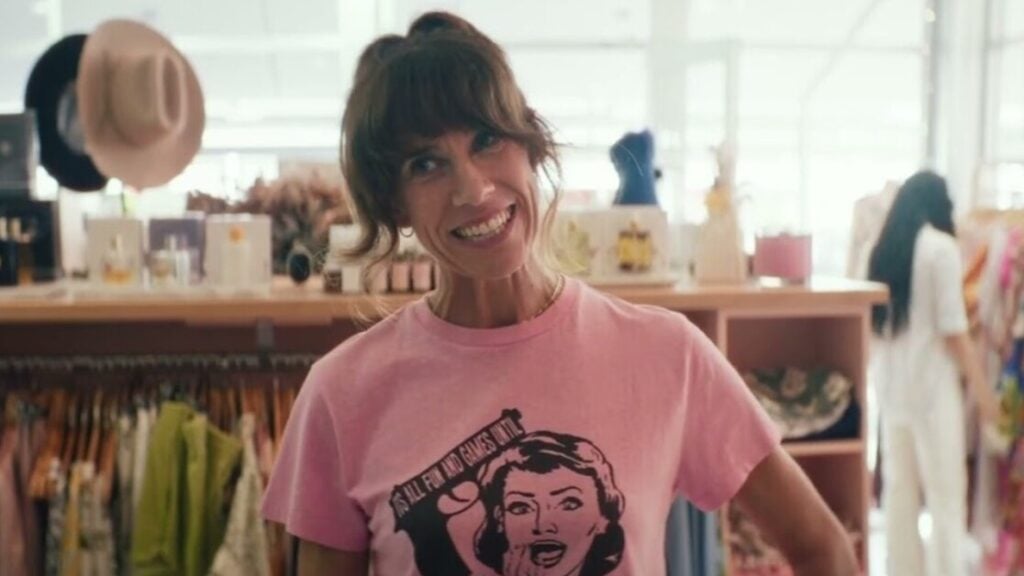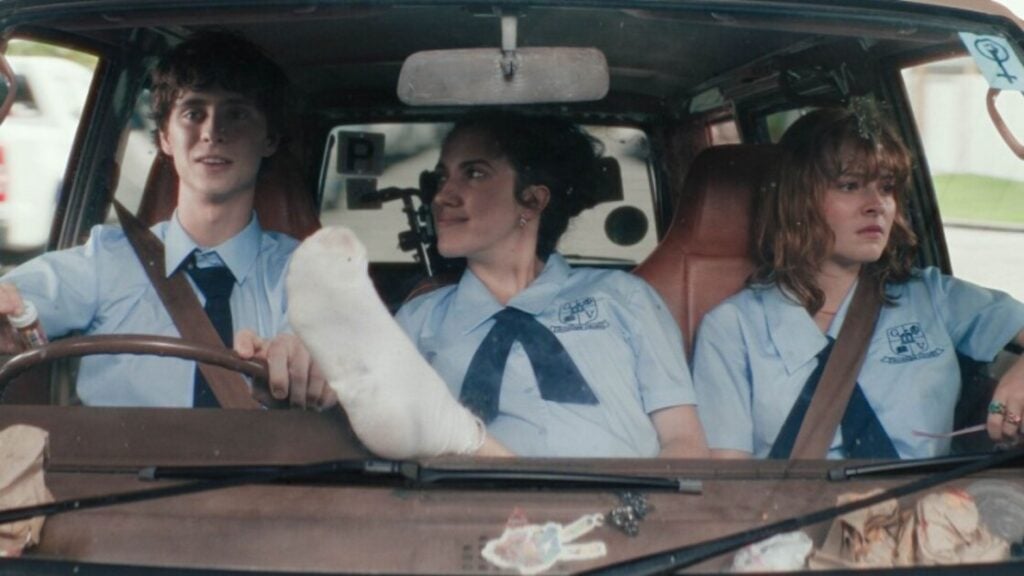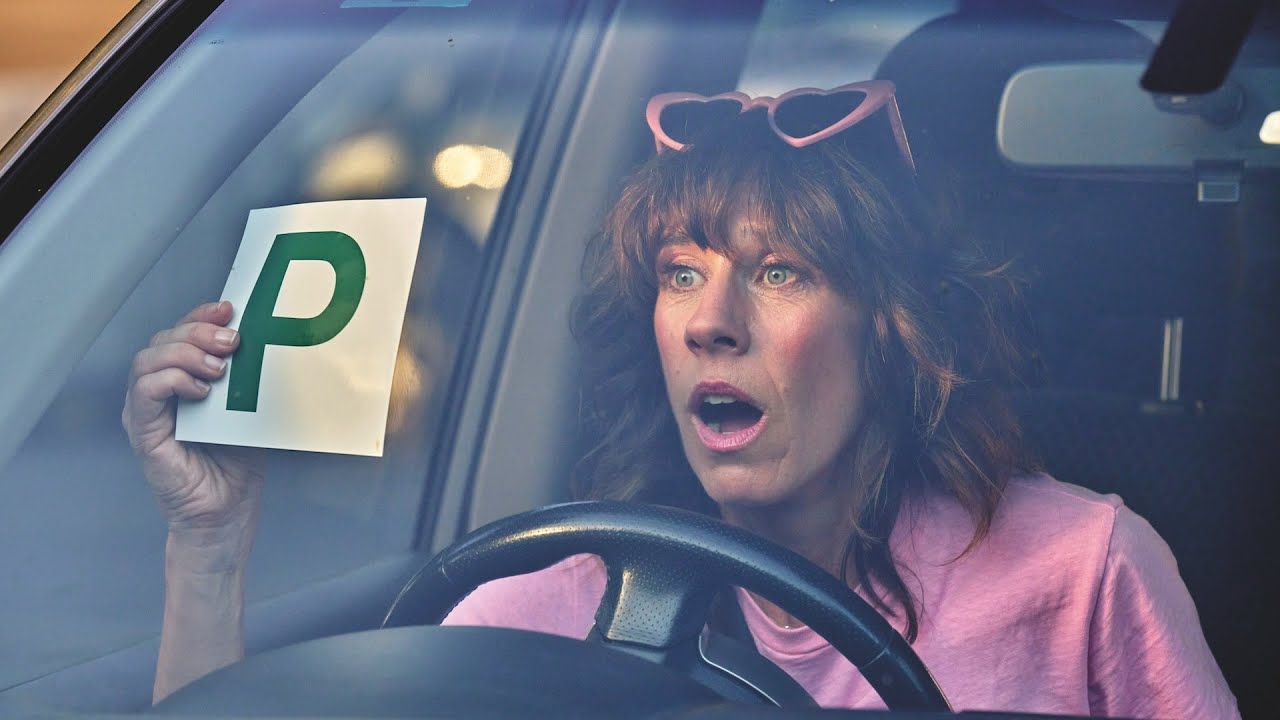Creating a dark comedy is always a gamble. What one finds cringy, the other finds humoristic, and what one sees as an underperforming moment, the other sees as a pitch-perfect scene. There has to be the perfect balance between darkness and lightness and between trauma and jokes. Congratulations to director Natalie Bailey, who, for her first big screen feature, Audrey, took on this challenge with both hands. However, the road to making an impeccable dark comedy seems a bit too bumpy. While the brilliant cast does everything with what they have been given, the bizarre plot and its predictability make Audrey a messy feature.
The film stars Jackie van Beek (Educators, The Inland Road), who delivers a forceful, funny, cringeworthy, and self-conscious performance as the actress-turned-mother Ronnie Lipsick. Ronnie had to give up her dreams and ambitions when she became a mother of Audrey (Josephine Blazier) and Norah (Hannah Diviney). Because Norah has cerebral palsy, Ronnie doesn’t truly consider her as a woman who has any potential. Instead, she focuses all her attention on Audrey. She supports (on the borderline of ‘forces’ really) Audrey to pursue a career in acting. One that Ronnie never had, which you can tell by the growing resentfulness towards her own daughter. Her sexless marriage with her husband Cormack (Jeremy Lindsay Taylor) doesn’t improve Ronnie’s mood either. Because of van Beek’s compelling acting, you certainly feel how lost Ronnie is in both personal and professional life and how much she longs for a potential return to the show business.
When the adventurous, headstrong and troublesome Audrey has an accident – which certainly is as dramatic as Ronnie’s acting – Ronnie doesn’t shed a tear over her. Instead, she takes on her daughter’s identity for a second chance in life. From enrolling herself into Audrey’s acting class to using the ‘P’-card to prove her inexperience in driving to posting hip and fashionable pictures on Instagram to giving her wardrobe a trendy make-over, Ronnie consumes Audrey’s identity in every way while her daughter is in a coma.

Because of this outlandish premise, in which everything is possible but not very plausible, and because Audrey is in a coma for most of the film, there aren’t many scenes between Blazier and van Beek. That’s a shame, though, cause when we do see those two women facing each other, Audrey becomes much more lively and intriguing. Not only because of van Beek but also because Blazier (True History of the Kelly Gang, Silver and the Book of Dreams) adds many complex layers to Audrey’s feisty personality with an absorbing performance. When Audrey is awake, you feel she’s ready to take advantage of the situation. She isn’t afraid to stand up for herself, which comes through energetically. Even when her character is comatose, Blazier’s performance doesn’t become less impressive. Her facial expressions still convey Audrey’s pity towards her mum and her strong and wilful attitude.
Because Audrey is in a coma and Ronnie is away from home to pursue fame and money, the strenuous relationship between the members of the Lipsick family becomes even more fragile. This further results in the them growing apart and the other two family members, Cormack and Norah, venturing out on their own. For the former, that means finally embracing his sexual awakening, while the latter sees this as an opportunity to step out of the shadow of her sister.
However, Bailey shining a brighter spotlight on those two characters is the downfall of this feature. The scandalous film set Cormack works on is over-the-top and disconcerting. Again, it’s perfectly understandable that if this is your sense of humour, you’ll adore the naked re-enactments of Jesus’ story or the Roman empire by him and his crew.
It’s just that his shocking affair doesn’t contribute to the film’s primary plot. His extra-marital relationship would have been the perfect opportunity to truly discover what’s playing between the couple and why their sex life isn’t what it used to be. While his fling indeed awakens Cormack’s desires for his partner, it only results in random sex scenes. Also, screenwriter Lou Sanz just casually throws in into the final act that the couple have agreed on having an open relationship. If Sanz hinted at that aspect of their marriage more throughout the movie, Cormack’s motivations and actions would have had blend in beautifully with the rest of the story.

What blends in nicely, tough, is Taylor’s outstanding performance (Force of Nature: The Dry 2, The Dry). Whether it’s bringing more humour to Cormack’s darkest moments or more passion and love to the caring on-screen father, Taylor gives a lot of heart to his character.
Norah might be overlooked by her parents and sister, the audience will definitely notice Diviney (Latecomers, Weekend Breakfast). Her scene-stealing acting certainly matches that of van Beek. Norah can finally find her true self, which includes joining the fencing team and starting a relationship with her sister’s boyfriend. While she could have easily been pushed to the background, Diviney prevents that with witty, snarky and passionate acting. However, she just doesn’t get enough to work with for Norah to become a full-fetched character. Most of her storyline involve jokes about her cerebral palsy and her having to live in the limelight of her sister.
While the strong performances certainly add a lot of nuances, complexity, darkness, and light to this film, the unrealistic plot and the unlikeable lead characters massively decrease the potential of the absurd dark comedy about individualism, narcissism, and ego.
Audrey is part of the BFI London Film Festival 2024 courtesy of Bankside Films. No US release has been announced yet. Read our interview with director Natalie Bailey here.

While the strong performances certainly add a lot of nuances, complexity, darkness, and light to this film, the unrealistic plot and the unlikeable lead characters massively decrease the potential of the absurd dark comedy about individualism, narcissism, and ego.
-
GVN Rating 6
-
User Ratings (0 Votes)
0







